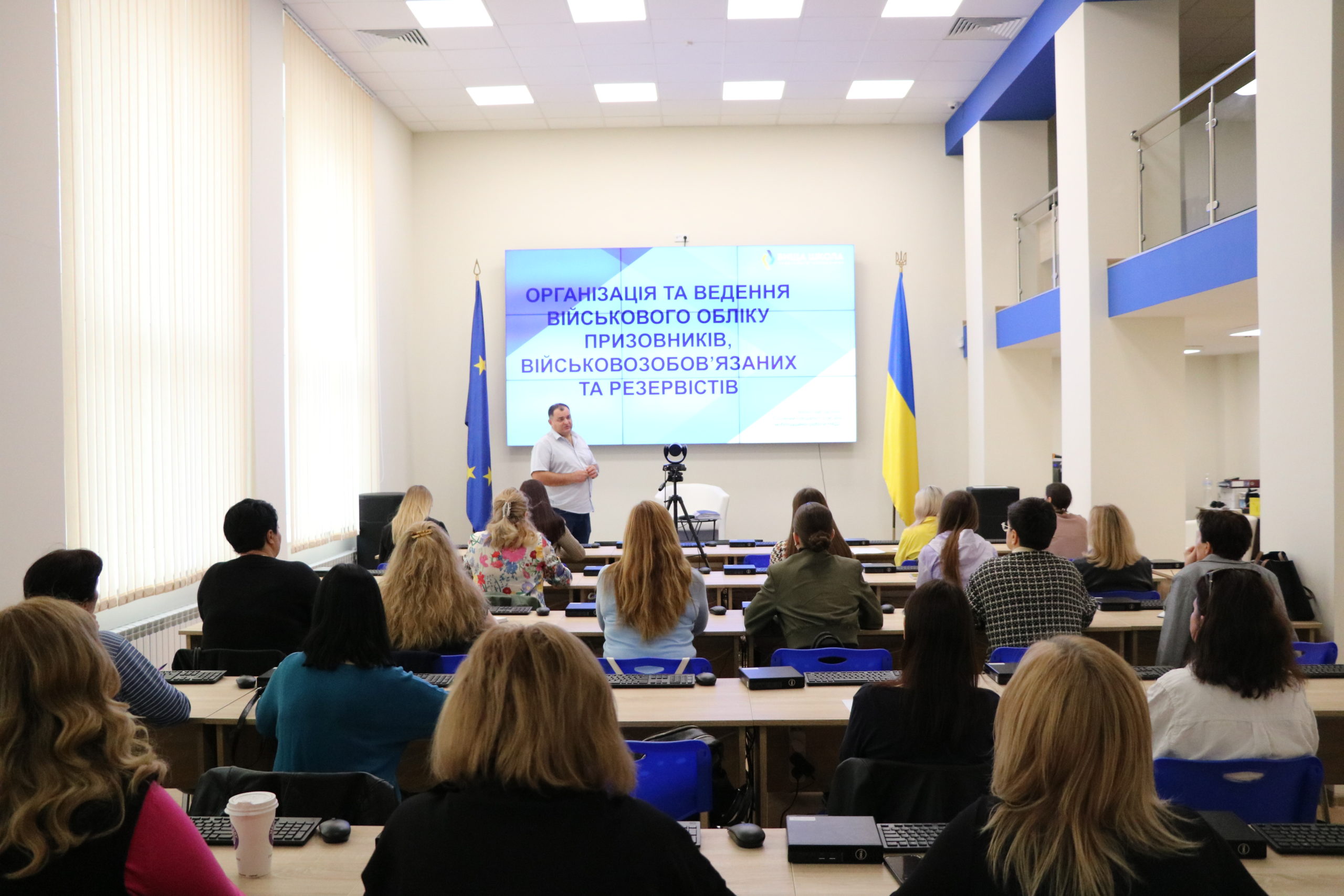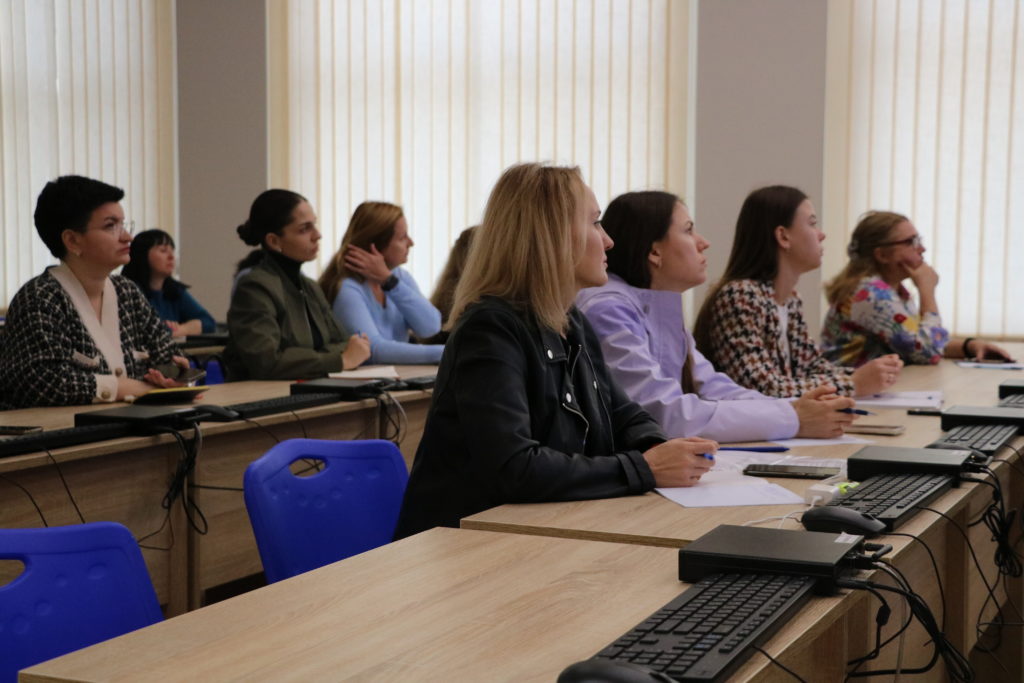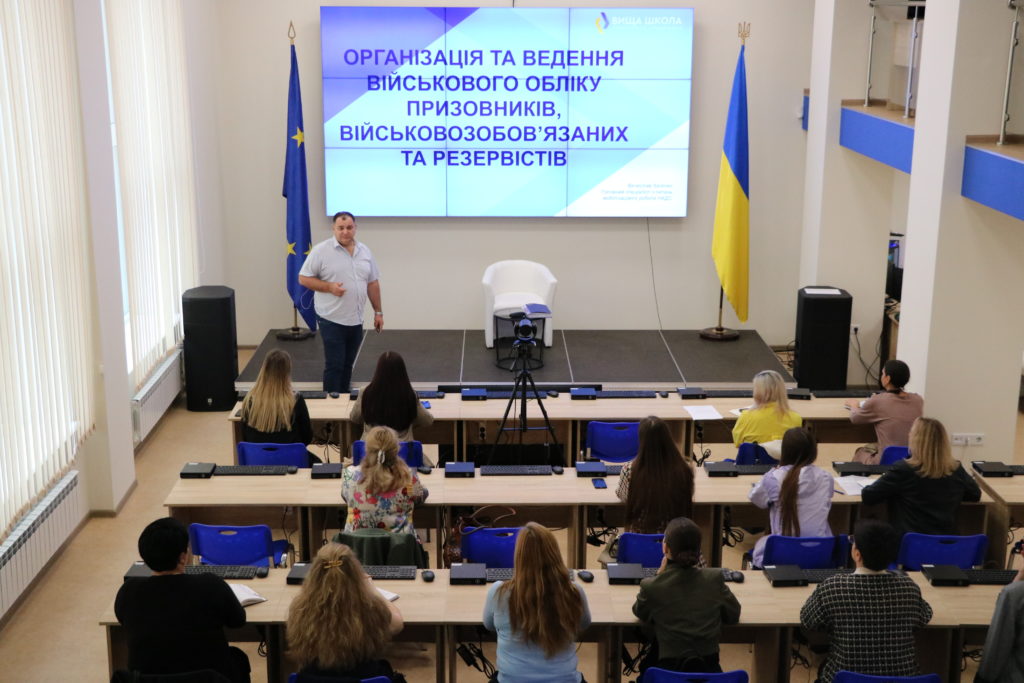
On September 30, the High School of Public Governance hosted a training on ‘Organisation and Maintenance of Military Records of Conscripts, Persons Liable for Military Service and Reservists’, organised jointly with the National Agency of Ukraine for Civil Service. The training was part of a short-term professional development programme. Particular attention was paid to the current challenges faced by government agencies and enterprises in the context of war, which require employees to have a clear understanding of the procedures for military registration, reservation of persons liable for military service and interaction with territorial recruitment centres.
The leading expert of the event was Vyacheslav Zasenko, Chief Specialist on Mobilisation of the National Agency of Ukraine on Civil Service. He covered in detail the legal aspects of organising and maintaining military registration of conscripts and reservists, explaining to the participants all the nuances of work in this area. He stressed the importance of compliance with the law, in particular the innovations that came into force in 2024 and affect mobilisation training and military registration.
The training participants also considered the organisation of military registration in state authorities, local self-government bodies and enterprises. This includes maintaining personal records, entering data into the Unified State Register of Conscripts and Persons Liable for Military Service, and updating personal data of reservists. Particular attention was paid to the reservation of persons liable for military service, which is critical to ensuring the stable operation of state institutions and enterprises that perform mobilisation tasks.
An important part of the training was a discussion of the interaction of state bodies, enterprises and institutions with district (city) territorial recruitment and social support centres.
The speaker emphasised the importance of rapid and clear information exchange between these structures for the successful completion of mobilisation tasks. Participants learned about the practical aspects of cooperation, including algorithms for notifying conscripts and persons liable for military service, summoning them to recruitment centres and informing the relevant authorities about changes in their credentials.
The training was attended by civil servants of categories B and C, who actively participated in the discussion of issues related to mobilisation and military registration. The high engagement of the participants confirmed the relevance of the topic and the need for training activities to maintain the high quality of mobilisation functions on the ground.



